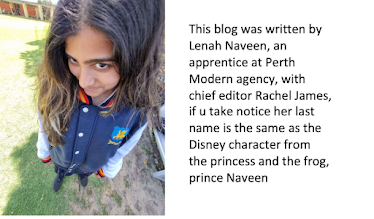are we ever "out of time"
It's interesting, the way some lines of poetry stay with you.
Maybe because of something magical about their language or the feelings they play on, the images they evoke or all these things together.
I sometimes find myself lying awake at night at the thought of the ungraspable passage of time, seconds flying into years.
I’m sure Eiichiro Oda feels the same, his anime One Piece which he revealed was originally planned to last five years, has now been ongoing for over 20 years. (will Luffy ever become pirate king…)
Before I go any further I just have to say, Kenneth Slessor the amazing poet u were(R.I.P.)!
To have composed a poem on such a topic utilising a trilogy of shakespearean sonnet’s while adhering perfectly to its typical structure is no easy feat.
for those of you who are unaware, a shakespearean sonnet is a sonnet comprised of:
- 3 quatrains - which are stanzas of 4 lines, usually having alternating rhymes
- an ending rhyming couplet of 2 lines
- iambic pentametre - a rhythmic pattern with each line of a verse consisting of 10 syllables with alternating stressed and unstressed syllables
Now folks although you may think he made this decision simply to show off his prowess, his use of a sonnet for this poem is very significant as it is invites this idea of time into the poem in yet another facet with the sonnet’s large history reaching to the middle ages.
===========================================================================
Though I can never remember the poem clearly enough to recite, what stays in the mind are a few scattered elements, or more specifically, The image of yachts.
"I saw Time flowing like a hundred yachts
That fly behind the daylight, foxed with air;"
From the first 2 verses of the first quatrain of the poem itself, who could doubt that this is a Sydney harbour poem! The vivid image of the yachts flying before the wind is no stranger to any aussie who has taken their round over east.
Time is moving “like a hundred sailboats”, these sailboats represent individual moments passing by, "flying behind the daylight" slipping out of your hands as the day continues. these are things being perceived by the speaker whilst viewing the harbour, telling us of the speakers view on the flow of time, as something damaging and stripping.
So Time, the wave, enfolds me in its bed,
Or Time, the bony knife, it runs me through.
The echoing sentence structure juxtaposes these 2 metaphors.
1. time as a wave flowing past "enfolding its bed" so burying those it sweeps over.
2. time as a weapon stabbing the speakers heart.
The first image although uneasy, comes off almost cosy with a suggestion of a funeral with “burying”, the second image however is more sinister, the knife representing the grimm reaper being a “bony” knife. This juxtaposes that of a willing gentle entrapment by time against the sudden stabbing knife of time. personifying Time as someone that, in the eyes of the speaker, takes without care.
"Skulker, take heart," I thought my own heart said."The flood, the blade go by - Time flows, not you!"
The next lines personify the heart, showing an introspective moment almost solitary with the speaker, as if the speaker only has his heart to talk to in this moment. Basically, he’s talking to himself (he’s so me).
“Time flows not you” further reinforces this idea of time’s present control over the speaker, the speaker cannot control the flow of its tides.
Vilely, continuously, stupidly,
Time takes me, drills me, drives through bone and vein,
So water bends the seaweeds in the sea,
The tide goes over, but the weeds remain.
This downhearted tone is carried through to the third quatrain of the first sonnet with the speaker.
Time is personified as heartless, he doesn’t care about the speaker and all are treated the same, much like waves that bend the seaweeds in the sea, the time flows over people, flying past them.
The ocean that the speaker gazes upon is the poems most prominent symbol for time itself with its vastness, ceaseless motion, and its paradoxical nature, it's always changing and always the same, making it a good reflection of Time, which likewise always behaves in the same way even as it churns up the world it runs through. Looking at the huge, eternal ocean might make a person feel pretty small and inconsequential; so does looking straight at Time.
Even though the time has passed over the seaweeds the weeds remain showing how people similarly are rooted in one spot of time, time rushing on and leaving them behind. How sad :(
BUT WAIT!
At this point between the end of the third quatrain and beginning of the rhyming couplet there is a sharp Volta(a sudden shift in tone)!
Time, you must cry farewell, take up the track,
And leave this lovely moment at your back!
The tone has been shifted suddenly, insinuating the speaker has moved past his initial disgust for time being a merciless mindless force, and signalling the initial acceptance of the speaker towards the flow of time. Now, time is a fellow sufferer, enduring the change and loss right alongside him and the others it affects.
Just like the speaker, time is forced to "cry farewell" to every "lovely moment" it rushes past, leaving weeds in the seabed. time becomes subject to time, subject to its own law
Time now, with the poems nautical themes is almost like the european maritime legend of the flying dutchmen, a spectre ship doomed to sail forever, as it depicts time as almost a helpless wanderer on an endless journey.
Time leaves the lovely moment at his back,
Eager to quench and ripen, kiss or kill;
To-morrow begs him, breathless for his lack,
Or beauty dead entreats him to be still.
The first sentence of the second sonnet replicated the last line of the first, creating an echo of continuity reflecting the idea about times constant change. Transformation of an ending to a beginning occurs throughout the poem and also marks like the transformation in the poems vision/approach.
A personifies tomorrow begs time to get there sooner while the "beauty dead entreads him to be still" to stop and preserve the always-dying "lovely moment", depicting how theres always someone hoping time with reach them sooner and at the same time someone hoping time wont leave them behind, but the instant time arrives are tomorrow he will already be scurrying to the next day, as such today's tomorrow is tomorrows “dead beauty.”
I and the moment laugh, and let him go,
Leaning against his golden undertow.
This image brings time down to earth, the speaker shares a "laugh" with the "moment" a personification of one of those endless dying "lovely moments" the speaker mourned earlier in the poem, another motif present in the poem. the moment and the speaker agree for a second, times just gonna do what hes gonna do theres no stopping or changing him.
In that second the speaker find that theyre "leaning against" [time's] golden undertow" a metaphor that reintroduces the idea of the ocean, an undertow being a dangerous invisible cross-curret that runs under the surface of the water, but here time's undertow becomes a sunlit golden support, the speaker rests against it essentially relaxing down into the flow of time. This moment of relaxation marks the end of the second sonnet and the introduction of a new experience for the speaker. the speaker is now slowly coming to terms with the passage of time and finding peace in that, moving towards Slessor's idea of the beauty of living in the moment.
Out of the torrent, like the fainter land
Lensed in a bubble's ghostly camera,
The lighted beach, the sharp and china sand
Glitters and waters and peninsula
Time is the “torrent” that carries everyone along, the speaker looks around this "fainter land" and the seaside stops being a gloomy metaphor for change and death and becomes itself with the bright imagery of these lines, once the speaker stops fretting about time he seems to enter a world in which time just doesnt seem to matter and all that there is is the world before them and its very beautiful.
The moment's world it was; and I was part,
Fleshless and ageless, changeless and made free.
"Fool, would you leave this country?" cried my heart,
But I was taken by the suck of sea.
Being free of time has also freed the speaker from their own limits. not just about time but from this moment they feel "fleshless ageless changeless and made free" as a part of this paradoxical eternal yet fleeting moment, they’re not just a body that will die but a being woven into the fabric of existence, losing their sense of detachedness or separatedness from the world, knowing theyre part of something eternal, the cycle of life. the speaker has truly comes to terms with the passage of time.
Ironically this cant last forever, the speakers personified heart speaks up again as if with premonition as the speaker felt sucked right back into the metaphorical currents of time the "suck of sea,” his change of perspective from the feeling of returning to the sea or running out of this time, reflecting the speakers humanity, as despite the peace he had found with Time the pressure of impending death still "sucks" him back.
The gulls go down, the body dies and rots,
And Time flows past them like a hundred yachts.
Although the conclusion ends in a feeling of gloom as the dragged back into their old perspective of impermanence and loss, insinuating due to the fear from impending death of the speaker as “the body dies and rots,” theres a glimmer of hope with the poems structure as the last line bends the poem into a symbol of eternity with the pattern of each sonnets first line echoing the last line of the previous, signalling for the cycle of acceptance again as almost a part of human experience
===========================================================================
To conclude
This poem strikes me as a message from Slessor of the importance of living in the moment and not being too attached to your past or the stresses of letting time dictate your life, as that will just keep you rooted in one spot like seaweed, unable to enjoy the beauty around you, letting your life wash past like the waves of time. There are moments where it may be harder to do so but as much as time takes it also gives and heals, much like the speaker who came to terms with the passage of time as the poem progressed.






Comments
Post a Comment